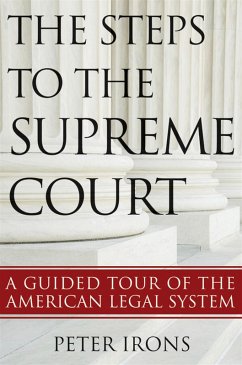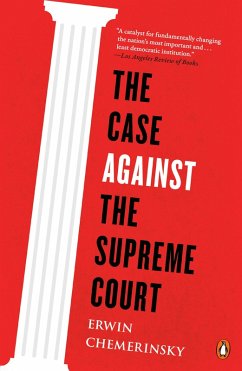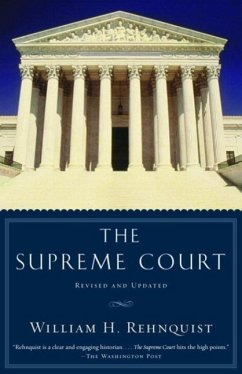
On Democracy's Doorstep: The Inside Story of How the Supreme Court Brought "One Person, One Vote" to the United States (eBook, ePUB)

PAYBACK Punkte
3 °P sammeln!
Winner of the Henry Adams Prize from the Society for History in the Federal Government A Washington Post Notable Work of Nonfiction A Slate Best Book of 2014 The inside story of the Supreme Court decisions that brought true democracy to the United States As chief justice of the U.S. Supreme Court, Earl Warren is most often remembered for landmark rulings in favor of desegregation and the rights of the accused. But Warren himself identified a lesser known group of cases-Baker v. Carr, Reynolds v. Sims, and their companions-as his most important work. J. Douglas Smith's On Democracy's Doorstep ...
Winner of the Henry Adams Prize from the Society for History in the Federal Government A Washington Post Notable Work of Nonfiction A Slate Best Book of 2014 The inside story of the Supreme Court decisions that brought true democracy to the United States As chief justice of the U.S. Supreme Court, Earl Warren is most often remembered for landmark rulings in favor of desegregation and the rights of the accused. But Warren himself identified a lesser known group of cases-Baker v. Carr, Reynolds v. Sims, and their companions-as his most important work. J. Douglas Smith's On Democracy's Doorstep masterfully recounts the tumultuous and often overlooked events that established the principle of "one person, one vote" in the United States. Before the Warren Court acted, American democracy was in poor order. As citizens migrated to urban areas, legislative boundaries remained the same, giving rural lawmakers from sparsely populated districts disproportionate political power-a power they often used on behalf of influential business interests. Smith shows how activists ranging from city boosters in Tennessee to the League of Women Voters worked to end malapportionment, incurring the wrath of chambers of commerce and southern segregationists as they did so. Despite a conspiracy of legislative inaction and a 1946 Supreme Court decision that instructed the judiciary not to enter the "political thicket," advocates did not lose hope. As Smith shows, they skillfully used the Fourteenth Amendment's Equal Protection Clause to argue for radical judicial intervention. Smith vividly depicts the unfolding drama as Attorney General Robert F. Kennedy pressed for change, Solicitor General Archibald Cox cautiously held back, young clerks pushed the justices toward ever-bolder reform, and the powerful Senate Minority Leader Everett Dirksen obsessively sought to reverse the judicial revolution that had upended state governments from California to Virginia. Today, following the Court's recent controversial decisions on voting rights and campaign finance, the battles described in On Democracy's Doorstep have increasing relevance. With erudition and verve, Smith illuminates this neglected episode of American political history and confronts its profound consequences.
Dieser Download kann aus rechtlichen Gründen nur mit Rechnungsadresse in D ausgeliefert werden.













